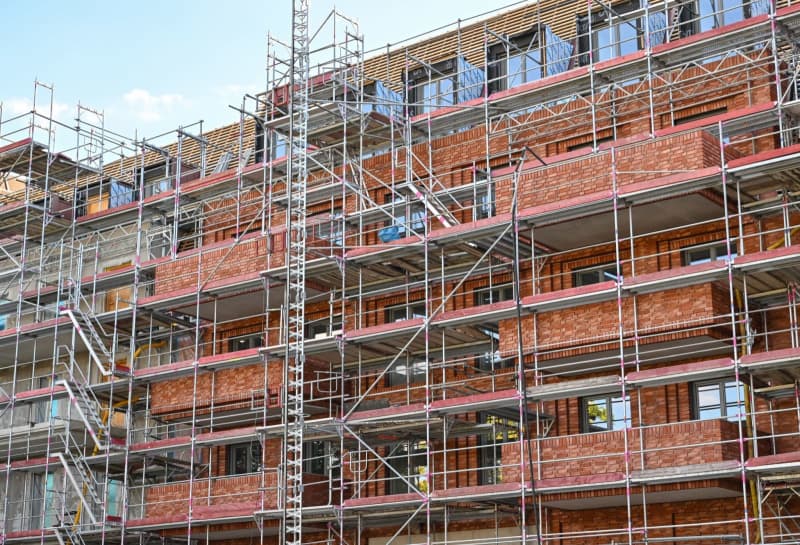Germany’s residential construction industry continues to face a lack of work and difficult conditions as a crisis in the sector stretches to nearly three years, according to a new survey from the ifo Institute published on Thursday.
In the ifo Institute’s monthly economic survey, 57% of housing construction companies complained about a lack of orders, more than ever before.
The downturn in the residential construction sector began in early 2022 and bottomed out about a year ago. Business for the sector has not improved significantly since then, despite slight ups and downs.
Ironically, demand for new flats remains extremely high in Germany, where many cities are facing housing shortages and sharply rising rents.
The poor state of the construction industry can be attributed to high construction costs and other economic factors that have driven down building despite demand.
“It is quite a challenge to remain optimistic,” said Tim-Oliver Müller, managing director of the Federation of the German Construction Industry, an industry lobby group. “We don’t have a housing shortage everywhere in Germany, we have a housing shortage in the big cities.”
For example, more than 75,000 people moved to Berlin in 2022, but only 15,000 new flats were built that year.
“The discrepancy between the very strong demand for affordable housing and the low supply is socially explosive,” said Müller.
Chancellor Olaf Scholz’s since-collapsed three-party coalition government had pledged to oversee the construction of at least 400,000 new apartments every year but fell well short of that goal.
Just under 300,000 new apartments were completed in 2023, according to government figures.
According to a forecast by the ifo Institute and the European construction research network Euroconstruct from August 2024, that figure could plummet to fewer than 200,000 newly completed apartments each year by 2026.
Scholz said on Thursday that he expects German lawmakers to pass an overhaul of buildings laws soon that should make new building easier.
“The bills are all ready,” Scholz said while touring a factory that makes building insulation and paint in southern Germany. “And I am sure that they will be passed with a relatively large consensus after the upcoming election at the latest, because they are not controversial.”
In the monthly ifo Institute survey, the majority of construction firms expressed pessimism about the coming months as well.
Lower interest rates from the European Central Bank, which were expected to spur construction, have not yet led to any easing of the situation, according to Klaus Wohlrabe, head of surveys for the Munich-based ifo Institute.
“The crisis in residential construction has become the norm,” said Wohlrabe.


